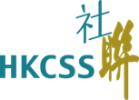What is Governance?
Governance is the responsibility for the direction, effectiveness, supervision and accountability of an organization. Board members of NGOs have contributed their time, knowledge and experience voluntarily and assumed the extremely important role of driving the development of not only their respective organisations, but also the social welfare sector.
As the social problems and challenges NGOs encountered become continuously more complex, the demand for NGOs providing services of high quality and being more transparent and accountable increases as well. In order to fulfil the expectations and foster the trust and support from the public, a governance framework has to be implemented.
Importance of Governance
NGOs are accountable to donors, service users, and other stakeholders. With good governance, NGOs can use their resources effectively, not only to maximize their social impact, but also to minimize and adapt to potential risk.
Public trust is the core element of an NGO’s success, and good governance is the very foundation on which an NGO builds and maintains public trust.
Roles and Responsibilities of the Board
The role of the board is to supervise the NGO on a strategic level, such as establishing the mission and value, determining the direction, overseeing the finances, ensuring the NGO has the necessary resources, and being accountable to the stakeholders.
However, the notion of governance and its role in the operation of NGOs could be easily lost in the mundane and repetitive administrative procedures. To serve as a reminder, BoardSource developed the above tools and infographics to which NGOs could refer.
- Board Service Infographic
- Checklist of Board Roles and Responsibilities
- What Makes a Good Board Member?
Resources
One event material and three manuals and guidelines have been published on the Project’s website since April and are as follows:
- Learning Platform on NGO Governance and Management: Webinar on Corruption Prevention Tips for NGOs, a webinar where the Council has invited officers from the Independent Commission Against Corruption (ICAC) to share on integrity management, corruption prevention principles, concerns that may have arisen during NGOs’ operations and the recommended control measures with aid of case studies.
- Corruption Prevention Tips for NGOs - Operations Amid Emergency Situations, a pamphlet jointly published by the Council and the Independent Commission Against Corruption (ICAC), highlighted the areas of concern and provide tips regarding the practices amid emergency situations.
- Anti-money Laundering/Counter-financing of Terrorism Due Diligence Toolkit for Hong Kong NGOs, developed by Mayer Brown and BNP Paribas in collaboration with the Council, is purposed to provide a risk assessment framework that addresses the latest anti-money laundering/counter-financing of terrorism requirements.
- New Inspection Regime Toolkit for NGOs, compiled and published by PwC Hong Kong, is purposed to provide information on the implementation of the new inspection regime for personal information on the Companies Register under the Companies Ordinance (Cap. 622). As Phase 3 of the New Inspection Regime will be implemented on 27 December 2023 and Phase 1 and Phase 2 have already come into effect, NGOs may refer to the toolkit and review whether additional actions are required.
Upcoming Events
Seminar on Complaints Handling in Relation to Human Resources Management of NGOs Operating Lump Sum Grant Services
To promote good practice in handling Lump Sum Grant-related complaints by NGOs’ management, the Council has invited the Chairman from Lump Sum Grant Independent Complaints Handling Committee (ICHC) to share his experience in complaints handling in relation to human resources management.
Guided Tour & Networking Session: Jockey Club “age at home” Gerontech Education and Rental Service
To allow NGOs to better understand the latest development and landscape of gerontechnology, the Council is going to organize a guided tour and networking session to the first Gerontech Education and Rental Service in Hong Kong. Through the visitation to two service centres in Fotan and Shatin, participants will not only understand how gerontechnology plays an important role in facilitating and realizing “ageing-in-place”, but also exchange thoughts and explore collaborations on applications of gerontechnology for NGOs’ future service development.
Issue 15 │ July 2023
Learning Platform on NGO Governance and Management is supported by Social Welfare Department


